"People at the University of Science and Technology often say I'm masculine! Maybe it's because I'm passionate about everything I do, and I do it with emotion, even with dry technical problems," Associate Professor Dr. Nguyen Minh Tan, Lecturer at the Faculty of Chemical Engineering, School of Chemistry and Life Sciences , Hanoi University of Science and Technology, shared.
“My job is to get research out of the lab.”
Born and raised in a technical environment, Associate Professor Dr. Nguyen Minh Tan has been associated with Hanoi University of Science and Technology from engineer to lecturer and researcher.
She received her PhD in Chemical Process & Equipment Technology from the Technical University of Dresden (Germany) in 2004, and her postdoctoral research in membrane technology at Johannes Kepler University Linz (Austria) in 2014. Returning to Vietnam, she taught and researched at the Faculty of Chemical Engineering (now part of the School of Chemistry and Life Sciences).
Associate Professor Nguyen Minh Tan in the laboratory. Photo: HUST.
Since 2012, she has been the Director of the Institute for Research and Development of Natural Products Applications (commonly known as INAPRO) of Hanoi University of Science and Technology. The university's personnel records the period 2012–2023, while many recent articles and announcements continue to introduce her as the Director of INAPRO, demonstrating her long-term commitment to this applied research institute.
“Bringing research out of the lab” is a phrase she mentioned many times when sharing. “My job is to bring research out of the lab to an industrial scale, be it agricultural products or wastewater treatment,” she said.
Scientists "rescue" Vietnamese agricultural products
The highlight of Associate Professor Dr. Nguyen Minh Tan's scientific journey is JEVA technology (Juice Evaporation at ambient pressure). In 2012, while researching membrane technology in Austria for agricultural applications, Associate Professor Dr. Nguyen Minh Tan came up with the idea of utilizing lychee to produce fruit juice all year round. From the initial idea, she and her team worked hard in the lab, finding a way to concentrate lychee juice while still preserving its natural flavor.
Associate Professor Nguyen Minh Tan presented on JEVA Technology to international scientists. Photo: HUST.
The challenges of temperature, pressure and nutrient preservation were solved one by one. After many years of efforts, JEVA technology was born. This is a tropical fruit juice concentration technology that integrates membrane processes such as MF, NF, RO and MD, combined with a cold surface evaporation system, allowing fruit juice processing at low temperature (below 42°C) and normal pressure. Thanks to that, the product retains its natural flavor, color and beneficial bioactive substances, while achieving a high concentration of solids.
In particular, JEVA products can be preserved at room temperature without preservatives, meeting the strict standards of demanding markets such as Europe, America and Japan.
The outstanding advantage of JEVA is to increase the value of agricultural products. This technology can turn cheap raw materials into high-quality export products. For example, 1 kg of discarded watermelon costs 2,000-4,000 VND, when condensed by JEVA into watermelon juice, it can be sold on the international market for 250,000-400,000 VND.
Along with that, it is flexible and not dependent on season. One system can process many different types of juice.
Another plus is its high mobility, which can be integrated into containers and moved to many areas for on-site production. It is simple to operate, can be controlled remotely, and does not require much manpower or high technology.
Not only stopping at fruit juice, Associate Professor Dr. Nguyen Minh Tan also developed a process of lowering the honey portion with JEVA, retaining nutrients and antioxidant activity, while reducing the HMF content. This technology is applied in the production of herbal honey, bringing high economic value to farmers and businesses.
“Rescuing agricultural products” used to be a haunting phrase during every peak season in Vietnam. With JEVA, the story does not stop at “rescuing” but rather creates a new value chain: extending preservation time, standardizing quality, opening export markets with standardized concentrated products, reducing dependence on seasons.
JEVA technology of Associate Professor Nguyen Minh Tan has been interested and applied by many domestic and foreign enterprises, bringing high added value to Vietnamese agricultural products. The story of a female lecturer who stepped into the market, maintaining her academic career while developing her business is affectionately called by everyone as "the savior of Vietnamese agricultural products".
“Don't let any limits stop your ambitions”
On March 8, 2025, Associate Professor, Dr. Nguyen Minh Tan was awarded the 2024 Kovalevskaia Prize, an award honoring female scientists with outstanding contributions.
Associate Professor Nguyen Minh Tan sent a message to female scientists: "Don't let any limits hinder your aspirations. Each failed experiment today is a brick for the tower of success tomorrow." Photo: HUST.
Speaking at the award ceremony, Associate Professor Tan sent a message to female scientists: "Don't let any limits hinder your aspirations. Each failed experiment today is a brick for the tower of success tomorrow."
Associate Professor Dr. Nguyen Minh Tan shared that in scientific research, she always believes that failure is necessary to gain experience and learn lessons. When she first started her career, every time she encountered a failure, she often felt upset, tormented herself and constantly asked herself: "Why is that? Where did I go wrong?"
But over time, from real-life experiences, she realized: what was once considered a failure is not necessarily a failure, but often the premise to open up a new direction. "So now, if things don't go as planned, I'm still happy and choose to look at it positively," she said.
She always remembered the advice of the Austrian teacher: “If something happens and you can’t solve it right away, just leave it as it is and sleep for the night!” After listening, I immediately argued: “What if you sleep for the night and the next morning it’s still the same?”
The teacher explained: “Sleeping overnight is not to avoid but to avoid making a decision right away. Because when you make a decision right away, you will be affected by your emotions and mood.”
She “argued” with the teacher: “What if you sleep one night and still don’t change?” And the answer came immediately, full of humor but also profound: “Then sleep another night, if still not changed, sleep another night, if possible. I’m almost 80 years old, I think I have enough qualifications to tell you that!”
Now, Associate Professor Tan understands that “sleeping one more night” is not to delay or avoid, but to give himself some space to look at the problem from another angle before making a decision.
Associate Professor Nguyen Minh Tan and the research group from the School of Chemistry and Life Sciences and the research group from the School of Electrical and Electronics discussed the application of AI to develop the Electronic Nose System. Photo: HUST.
Currently, Associate Professor Dr. Nguyen Minh Tan's research group is collaborating with a group from the School of Electrical and Electronics to develop an "Electronic Nose" system using AI.
For example, with exported durians, the shipping time can be 2–3 weeks depending on the destination, so it is necessary to calculate so that the fruit arrives at the right ripeness. Traditionally, to determine ripeness, chromatography analysis is used; even with modern equipment, this process still takes 3–4 hours.
“If we can make an Electronic Nose System, we can determine the ripeness of fruits very quickly and at a low cost. Not only agricultural products, we aim for the system to be able to distinguish between fresh milk and old milk (stored for a long time). This system will be helpful for school cafeterias,” she shared.
Source: https://khoahocdoisong.vn/nu-giang-vien-dua-nong-san-viet-tu-phong-thi-nghiem-toi-ban-an-chau-au-post2149045789.html






![[Photo] Joy on the new Phong Chau bridge](https://vphoto.vietnam.vn/thumb/1200x675/vietnam/resource/IMAGE/2025/9/28/b00322b29c8043fbb8b6844fdd6c78ea)
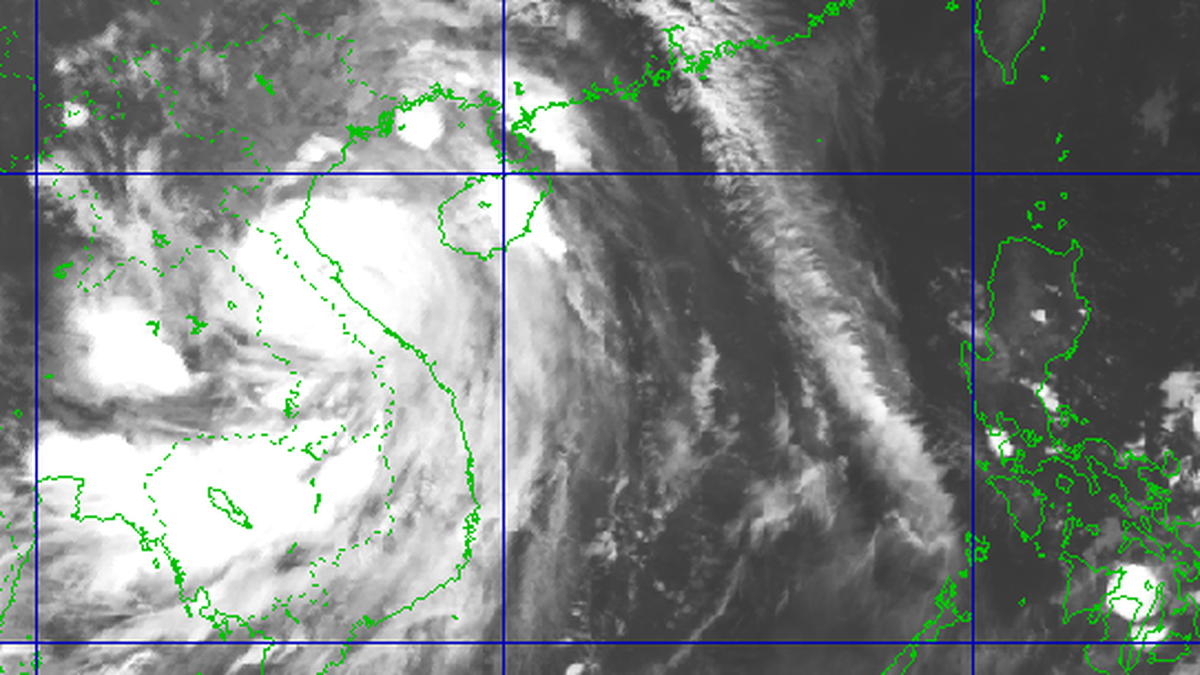

![[Photo] The 4th meeting of the Inter-Parliamentary Cooperation Committee between the National Assembly of Vietnam and the State Duma of Russia](https://vphoto.vietnam.vn/thumb/1200x675/vietnam/resource/IMAGE/2025/9/28/9f9e84a38675449aa9c08b391e153183)

![[Photo] High-ranking delegation of the Russian State Duma visits President Ho Chi Minh's Mausoleum](https://vphoto.vietnam.vn/thumb/1200x675/vietnam/resource/IMAGE/2025/9/28/c6dfd505d79b460a93752e48882e8f7e)
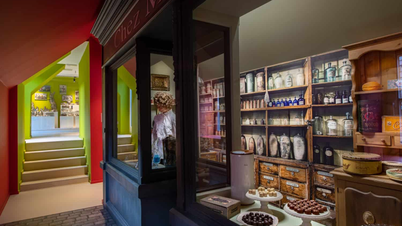











































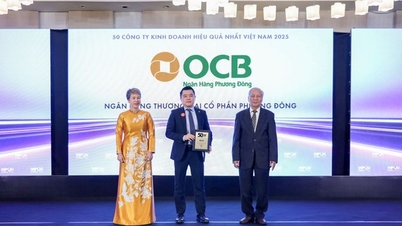

















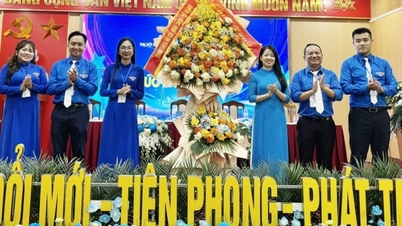
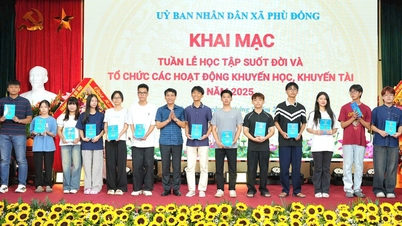
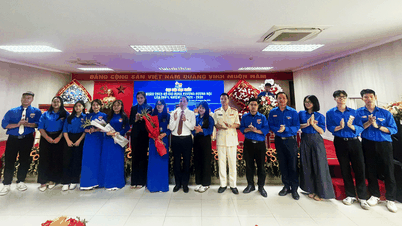
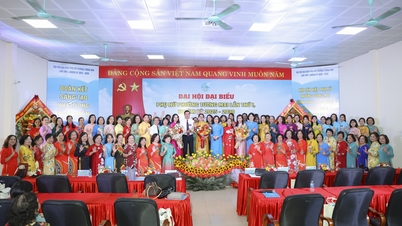















Comment (0)